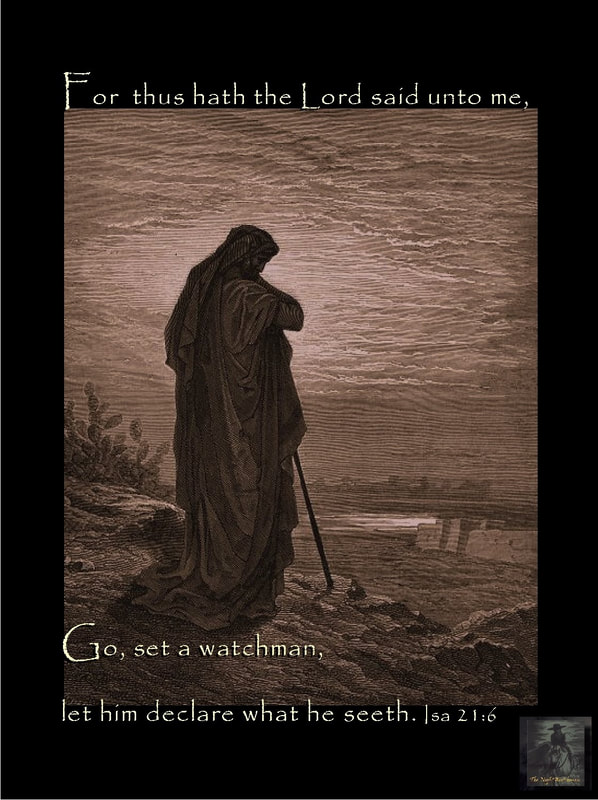|
For we would not, brethren, have you ignorant of our trouble which came to us in Asia, that we were pressed out of measure, above strength, insomuch that we despaired even of life: But we had the sentence of death in ourselves, that we should not trust in ourselves, but in God which raiseth the dead: Who delivered us from so great a death, and doth deliver: in whom we trust that he will yet deliver us; 2Co 1:8-10 Our passage speaks again of the Lord's resurrection power operating in our daily Christian lives, in the process of sanctification and spiritual growth. The setting in which the Lord did this resurrecting work was in the midst of trials while serving God. Paul did not want other believers to be unaware of his difficulties. "For we do not want you to be ignorant, brethren, of our trouble which came to us in Asia." Too often, we are tempted to keep our struggles totally private. Thereby, we rob glory from God, when He delivers us. Also, we keep others from learning important lessons that come from watching God fulfill the faithful promises of His word. Paul's battles were severe on this occasion. "We were burdened beyond measure, above strength, so that we despaired even of life. Yes, we had the sentence of death in ourselves." Spiritually speaking, these trials were killing Paul and his missionary team. They were pressed down, overwhelmed, helpless, and hopeless. When we are in hopeless despair, our sufferings seem to be pointless. Yet, our difficulties (like Paul's) have this invaluable purpose built into them: "that we should not trust in ourselves but in God who raises the dead." We have frequently noted that living by grace requires humility and faith. God gives grace to the humble, and faith accesses grace. Well, in the trials of life, God is working on developing these relational realities (spiritual realities that become real through a growing relationship with Jesus). Trials and difficulties become occasions to be humbled before God. We are provoked to cry out to God in helplessness. Also, trials present new opportunities to trust in the Lord. When the trials are intense, God is purging us of the primary obstacle to trusting in God, and that is self-trust. "Yes, we had the sentence of death in ourselves, that we should not trust in ourselves but in God who raises the dead." Thus, convinced that we cannot handle it, we call upon God, who faithfully resurrects us from our circumstantial death. "Who delivered us from so great a death." Thereby, faith grows that He will continue to rescue us: "and does deliver us; in whom we trust that He will still deliver us." (Day By Day By Grace) Note: What part of Paul's history in these references are, is not sure, but it's thought they are in regard to the suffering and trials at Lystra, when he was stoned and left for dead, and other severe persecutions he endured; that in all human sense, destroyed his life. His being raised back up, was an evidence of God's miraculous intervention in his life. WHAT CAN WE LEARN FROM THESE VERSES I. Are often experienced in the rest of enterprises (2Co_11:23; 2Co_11:29). II. Are ever necessary for the rendering of the highest service to mankind (verse 6). III. Their detailment purely for the good of others is justifiable (2Co_1:8). IV. Their experience often proves a blessing to the sufferer. They seem to have done two things for Paul-- 1. To have transferred his trust in himself to God (2Co_1:9). 2. To have awakened the prayers of others on his behalf (2Co_1:11). (D. Thomas, D. D.) The peculiar afflictions of God’s people I. God suffers his children to fall into great extremities. 1. To try what mettle they are made of. Light afflictions will not try them thoroughly, great ones will. What we are in great afflictions, we are indeed. 2. To try the sincerity of our estate, to make us known to the world and known to ourselves. A man knows not what a deal of looseness he hath in his heart, and what a deal of falseness, till we come to extremity. 3. To set an edge upon our desires and our prayers (Psa_130:1). 4. To exercise our faith and patience. 5. To perfect the work of mortification. 6. To prepare us for greater blessings. Humility doth empty the soul, and crosses do breed humility. The emptiness of the soul fits it for receipt. Why doth the husbandman rend his ground with the plough? Is it because he hath an ill mind to the ground? No. He means to sow good seed there, and he will not plough a whir longer than may serve to prepare the ground (Isa_28:24). So likewise the goldsmith, the best metal that he hath, he tempers it, he labours to consume the dross of it, and the longer it is in the fire the more pure it comes forth. 7. That we might set a price upon the comforts when they come. 8. Learn, then-- (1) Not to pass a harsh, rigid censure upon ourselves or others for any great affliction or abasement in this world. (2) Not to build overmuch confidence on earthly things. DEVELOPMENT OF FAITH IN THE FACE OF DEATH II. As God’s children are brought to this estate, so they are sensible of it. They are flesh and not steel (Job_6:12). They are men and not stones. They are Christians and not Stoics. III. We may triumph over death by faith and grace. That we may not fear death overmuch, let us look upon it in the glass of the gospel as it is now in Christ, and meditate on the two terms, from whence and whither. What a blessed change it is if we be in Christ! (R. Sibbes, D. D.) Death a sentence Death is-- I. A sentence. 1. Universal. 2. Just. 3. Irrevocable. II. As a sentence in man. “We have the sentence of death in ourselves.” 1. The sentence of death is in man’s body. It is born with him, and it continues to work within until the organization falls back to its original dust. “The moment we begin to live we all begin to die.” 2. The sentence of death is in man’s mind. There it dwells as a dark thought spreading a gloom over the whole of his life. It haunts the memory, it terrifies the conscience. It is in us, we cannot get rid of it. No science can expel it from the body, no reason can argue it from the soul. III. As a sentence in man for useful ends. What are the spiritual uses it is designed to answer? 1. Nontrust in self. “Not trust in ourselves.” There is a self-reliance that is a duty. But there is a self-confidence that is sinful and ruinous. Now the sentence of death tends to check this. It makes man feel his frailty. Thank God for death, it keeps down the arrogant spirit of humanity. 2. Devout trust in God. “But in God that raiseth the dead.” Man’s well-being is essentially dependent upon trust in God. (Homilist.) (excerpt from Biblical Illustrator) Relevant Scriptures: 2Co 4:14 Knowing that he which raised up the Lord Jesus shall raise up us also by Jesus, and shall present us with you. See also: 2Co_5:1-4; Isa_26:19; Joh_11:25-26; Rom_8:11; 1Co_6:14, 1Co_15:20-22; 1Th_4:14 Jesus' Victory Over Death Jesus Appears to His Disciples Joh 20:24 But Thomas, one of the twelve, called Didymus, was not with them when Jesus came.
Joh 20:25 The other disciples therefore said unto him, We have seen the Lord. But he said unto them, Except I shall see in his hands the print of the nails, and put my finger into the print of the nails, and thrust my hand into his side, I will not believe. Joh 20:26 And after eight days again his disciples were within, and Thomas with them: then came Jesus, the doors being shut, and stood in the midst, and said, Peace be unto you. Joh 20:27 Then saith he to Thomas, Reach hither thy finger, and behold my hands; and reach hither thy hand, and thrust it into my side: and be not faithless, but believing. Joh 20:28 And Thomas answered and said unto him, My Lord and my God. Joh 20:29 Jesus saith unto him, Thomas, because thou hast seen me, thou hast believed: blessed are they that have not seen, and yet have believed. Comments are closed.
|
Welcome
In this page there will be devotions/poems music and inspirational material 
The Lord Will Pour Out His Spirit
And it shall come to pass afterward, that I will pour out my spirit upon all flesh; and your sons and your daughters shall prophesy, your old men shall dream dreams, your young men shall see visions:
And also upon the servants and upon the handmaids in those days will I pour out my spirit. And I will shew wonders in the heavens and in the earth, blood, and fire, and pillars of smoke. The sun shall be turned into darkness, and the moon into blood, before the great and the terrible day of the LORD come. And it shall come to pass, that whosoever shall call on the name of the LORD shall be delivered: for in mount Zion and in Jerusalem shall be deliverance, as the LORD hath said, and in the remnant whom the LORD shall call. Joel 2:28-32 But this is that which was spoken by the
prophet Joel; And it shall come to pass in the last days, saith God, I will pour out of my Spirit upon all flesh: and your sons and your daughters shall prophesy, and your young men shall see visions, and your old men shall dream dreams: And on my servants and on my handmaidens I will pour out in those days of my Spirit; and they shall prophesy: Act 2:16-18 Resources
Madame Guyon - A Short and Easy Method of Prayer / Christian Audio Book (1 / 2) https://youtu.be/eihZWpAk7y4?si=PQ-_J3Y6i8u-N2Ac Union With God By Jeanne Guyon Chapter 1 Of 7 https://youtu.be/d5AfKS2dFLg?si=VtWAeEurkAddTDpL The Practice of the Presence of God - audiobook Brother LAWRENCE (1614 - 1691)- https://youtu.be/rRAs_BK1NR8?si=hGAL4C829aH7 DKMn Gander Story Poems
https://www.gander poems.org/ Archives
July 2024
|
Proudly powered by Weebly







